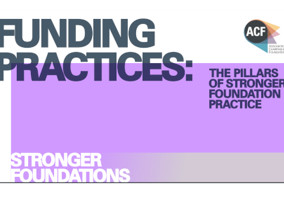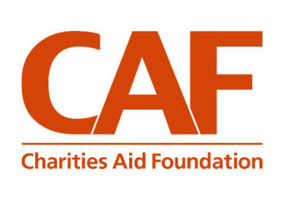There are likely to be additional demands on grantmaking bodies in the current climate, not least an increase in applications for funding from both individuals and organisations.
Speaking to a number of clients throughout this recent period, we felt it might be useful to set out some thoughts and tips to help organisations where grantmaking is the main means of delivering their public benefit.
Due diligence on funding applications
Are those that are seeking funding or making applications known to you? What due diligence should you do to ensure that the applications are from genuine sources? Fraudsters are finding lots of new and innovative ways to access funds, and grantmaking bodies who assist in times of hardship may be a prime target. Do you/should you seek validating information to process applications? Whilst this may seem intrusive, it is essential to ensure that your funds are used to support genuine beneficiaries.
In addition to funding individuals, many applications will be seeking financial support for charities that are in need. Whilst it is indeed a very difficult time, what due diligence have you carried out on organisations that have applied for funding? A key question to ask is: are you funding an operation that has a genuine possibility of survival? What evidence have you seen of a restructure plan or strategy that means your funds will assist in the preservation of a charity seeking support, and what monitoring procedures will you put in place to ensure that your funds are put to good use? Where concerns are identified, it may be prudent to vary your normal terms and conditions.
Public benefit monitoring
Many grants, particularly research grants, are often commitments to support a research facility over a period of time, or for a project that is anticipated to span a number of years. The structure of these arrangements can either be all funding up front, or drawdown facilities over a period of time. In either case, you should ensure that you continue to monitor and seek confirmation of progress against funding objectives.
Effects of COVID-19
A key financial measure adopted by the government has been the furlough scheme. When you are assessing the claims for the last quarter, you may want to seek confirmation of how your funds were utilised if the organisations you fund furloughed key staff that were delivering your grant. For example, if they furloughed staff, then whilst they will continue to pay staff under furlough, this will have been reclaimed by the organisation and should not (arguably) be part of their claim against the grant unless you have agreed that any top up can be absorbed by the grant.
Where grants had specific terms and conditions for delivery which were time related, do you now need to renegotiate these terms? What are the clauses within the grant funding agreements that need to be followed to extend the period of support?
Future cash flow
Organisations that have been impacted by recent events are likely to have had to reprofile their work, and this may have impacted on their cash flow requirements to deliver projects. If the grants are drawn down over a period of time, how will these changes impact on the requirement for cash from you as a grantmaker? Do you now need to reprofile your own commitments and cash flow needs to match those that you fund? If so, does this require a change in your short or medium-term investment strategy, or the availability of cash within the charity to fund the drawdowns?
Reserves
Where you have traditionally funded grants from fundraising, what is the impact on your reserves, particularly where you need to meet existing commitments? Is there a need to designate funds to match current commitments, if you don’t do so already, to make it clear to a reader of your accounts the level of general reserves remaining? Is there a need to revisit the reserves policy generally, and align this with a new strategy, at least in the short term? Or if fundraising has been negatively impacted by the Covid-19 pandemic, is there a need to reconsider and communicate the funding you are making available in coming rounds of grantmaking based on what you have available?
Flexibility
We are seeing many grantmakers endeavour to take a flexible approach to their recipients, and this has provided welcome relief to many given the current uncertain landscape. As set out above, this includes requests to vary the timing of grant payments based on the expected delivery of activities. You may also receive requests to vary the activities you fund. If so, are the new activities within your charitable objects? Where the proposed activities are of a complex or technical nature, do you have the necessary skills and expertise to review the grant reporting?
Richard Weaver is partner and head of charities and not-for-profit at haysmacintyre











